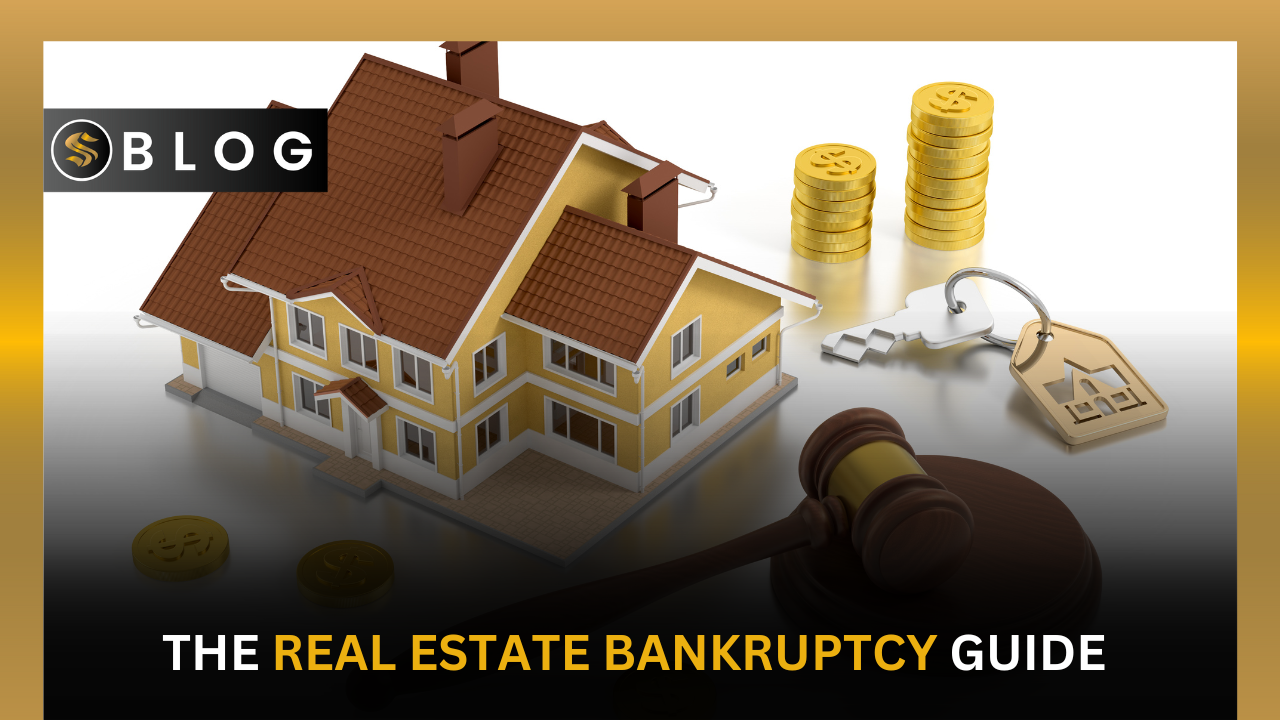
Share This Story, Choose Your Platform!
Navigating Bankruptcy in Real Estate – A Comprehensive Guide
In the realm of real estate investments, there are both triumphs and challenges. Unfortunately, the latter sometimes leads individuals and businesses to face financial turmoil, potentially resulting in bankruptcy. In this blog, we will try to understand the concept of bankruptcy in real estate, shedding light on its causes, types, consequences, and possible paths to recovery.
What is Bankruptcy?
Bankruptcy is a legal process that provides individuals and businesses with financial relief when they cannot repay their debts. It allows liquidating assets or restructuring debt to provide a fresh start and equitable treatment to the debtor and creditors.
Common Causes of Bankruptcy in Real Estate
1. Economic Downturn
Real estate markets can be volatile, and economic downturns can lead to decreased property values, making it challenging for investors to meet their financial obligations.
2. Overleveraging
When investors take on excessive debt to finance real estate ventures, a downturn or unexpected circumstances can make it difficult to service those debts.
3. Inadequate Market Research
Lack of proper due diligence, market analysis, and risk assessment can result in investment decisions that do not yield expected returns, leading to financial distress.
4. Natural Disasters
Unforeseen events such as hurricanes, earthquakes, or floods can cause significant property damage, leaving real estate owners and investors in dire financial straits.
You May Also Read
The Power of Appreciation in Real Estate – Unlocking Potential for Profit
5. Mismanagement
Poor property management, ineffective rental strategies, or inadequate cash flow management can contribute to financial instability and potential bankruptcy.
Types of Bankruptcy in Real Estate
1. Chapter 7
Also known as liquidation bankruptcy, it involves the sale of assets to repay creditors. In real estate, this may entail selling properties to settle outstanding debts.
2. Chapter 11
Primarily utilized by businesses, Chapter 11 bankruptcy allows for the reorganization of debts while the entity continues operations. Real estate developers and large-scale property investors often pursue this option to restructure their financial affairs.
3. Chapter 13
Designed for individuals with a regular income, Chapter 13 bankruptcy involves creating a repayment plan to gradually pay off debts over a specified period, usually three to five years.
Consequences of Bankruptcy in Real Estate
1. Credit Score Impact
Bankruptcy significantly negatively impacts one’s credit score, making it harder to obtain future loans or credit at favourable terms.
2. Asset Liquidation
Bankruptcy may necessitate the sale of real estate assets, potentially leading to financial losses and disruption of investment plans.
3. Legal Consequences
Depending on the circumstances, bankruptcy can result in legal actions, disputes, or potential lawsuits from creditors or investors.
4. Reputation and Stigma
Bankruptcy in the real estate industry can damage one’s professional reputation, affecting future business opportunities and partnerships.
Paths to Recovery
1. Financial Restructuring
Negotiating with creditors to restructure debt and establish manageable repayment plans can help alleviate financial burdens.
2. Learning from Mistakes
Evaluating past investment decisions, conducting thorough market research, and learning from mistakes can prevent future financial pitfalls.
3. Seeking Professional Advice
Consulting financial advisors, bankruptcy attorneys, or real estate experts can provide valuable insights and guidance throughout the recovery process.
4. Building a Strong Credit History
Taking proactive steps to rebuild credit, such as making timely payments, reducing debt, and establishing a positive payment history, can gradually improve creditworthiness.
Conclusion
Bankruptcy in real estate can be a challenging and distressing experience. However, it is crucial to remember that it is not the end of the road. By understanding the causes, types, consequences, and recovery options associated with real estate bankruptcy, individuals and businesses can make informed decisions and navigate the path to financial stability. Remember, learning from past mistakes and seeking professional guidance are essential ingredients for a successful recovery in the real estate industry.
Sapphire Builders and Associates empowers individuals with real estate knowledge for informed decision-making. Through our word of the week series, we provide a new real estate-related term every week, enabling our audience to make beneficial choices in the long term. Renowned for our client-centric policies and strong work ethics, we invite you to explore our website and social media platforms to learn more about real estate terms and our exceptional projects, including Opal Mall and Luxury Suites, Omega Mall, and Oak Vista Luxury Service Apartments




